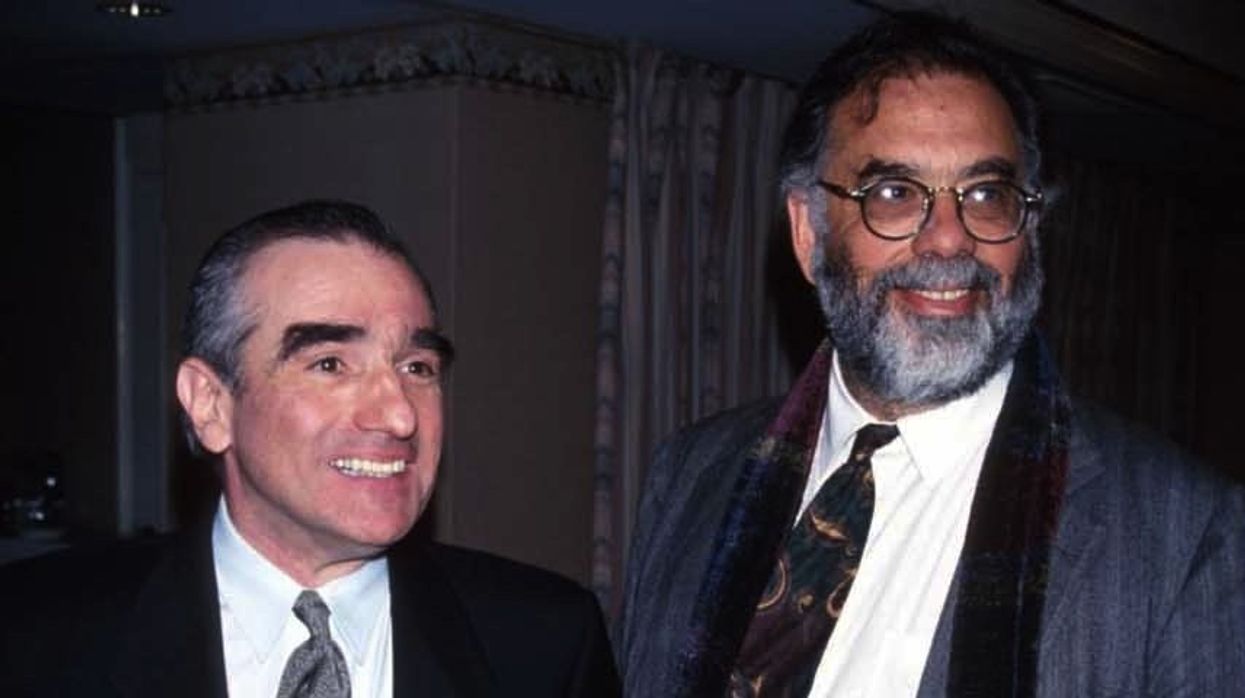Gem from the Past: Coppola & Scorsese Discuss the Future of Filmmaking

Every once in a while the internet offers us a rare gem from the past, and today is one of those days. Circa 1997, Martin Scorsese and Francis Ford Coppola sat down with Geoffrey Gilmore, the then-director of the Sundance Film Festival to discuss their careers and their views on the future of filmmaking. Well, the future is here, and it's cool to see that a couple of the century's best filmmakers were spot on about the direction things are moving in. After the creative frenzy of the 70's, described by Scorsese as "an atmosphere of making special movies," United Artists collapsed. Maverick filmmakers like Scorsese and Coppola had to re-learn how to make movies, and on smaller budgets. Sound familiar? Hit the jump for the full 50-minute interview.
Thanks to Cinephilia and Beyond for finding this (the interview starts at 4:25):
(note: The video gets a little skippy around the 30 minute mark)
This is a fascinating interview especially for those of us in the midst of the very swing of change that Coppola and Scorsese predicted. But aren't things always changing? In a time of transition, one thing will always beat out another -- that's natural selection, but Coppola describes how a time of transition is important for seizing the moment and creating that change.
The traditional studio period was coming to an end and it was a bit of a no man's land, and the movies I got to make in the 70's were purely because we were running too fast for anyone to stop us. We never got permission to start those movies -- we just sorta started and by the time they realized what we were doing, we had those films in production.
The contention that Scorsese makes is that the corporate studio world essentially became too afraid to takes risks. Well, that seems to be a job better suited for the artists. Filmmaking is such an expensive medium that it has a built-in obligation to make money, but with budgets getting lower and lower, what does it mean for the current system? What Coppola had to say 15 years ago still rings true:
The movie business is not Coca-Cola-- you still depend on artistry and this flies in the face of how modern corporations are run. Things change whenever you have an old system that basically is not profitable and shaky, and at the same time you have a vital new group of young people who are very passionate about movies. It's sort of like how Italian neorealism collapsed the old Italian costume period.
Which leads us to another question: Is cinema an important medium? Why? What is its true purpose? Is it in conflict with the apparatus that is required to create them? To me, Coppola says it better in this interview than anywhere else I've read:
When you hear people talking about a film they've just seen, you can see hear how important it is for them to get something out of it -- how audiences look to film to somehow illuminate life. As long as film is gonna be this product that is based on another film that was successful, then how are writers and directors and actors going to deal with the subject matter that helps interpret modern life? Life is changing, the role of the woman has changed, the politics, all these things. You wish that films could shed some light on this stuff, because that seems to be the role of art.
How is cinema different from television? Scorsese describes what it is for him:
It's a different frame of reference. We had the frame of reference from Hollywood's Golden Age. We saw movies on the big screens, in theaters. Unfortunately, a lot of the audiences now, the younger people -- their frame of reference is television with snappy dialogue. This is cinema, this is something else. This is something else that is supposed to be here in this room.
It seems that everything in life moves in cycles, and the organism that is cinema is no different. The ebb and flow of the established movie industry and the rise of independent film is a pendulum with no end in sight. Coppola describes a sense of regret he feels about his own inability to make the kind of permanent changes he thought he might:
Back then in the middle '60s I really thought we had the potential to have a company that would change the system. I don't regret any of the projects I did, but I regret a little bit that the film industry we're leaving to the next generation is not as good as what we received.
What makes these two people such great filmmakers? I think the theme that unites Scorsese and Coppola is the hunger for learning. The risks they take are to create opportunities for learning -- for growth. They want to experiment, to push boundaries and unlock doors.
The diversity of my films comes from the fact that I always would say, well, if it's an assignment, as The Godfather was, then I'll learn a lot. I used to use every film as a kind of experiment, and saying someday when I get back to making my own films I'll have done all these experiments and I'll be able to utilize what I've learned. We use the profession of making movies as a way to educate ourselves, because we haven't uncovered 6% of what cinema can be and what it can do.
What have you learned from Scorsese and Coppola? Join the discussion in the comments below.
Link: Martin Scorsese and Francis Ford Coppola — Cinephilia and Beyond













